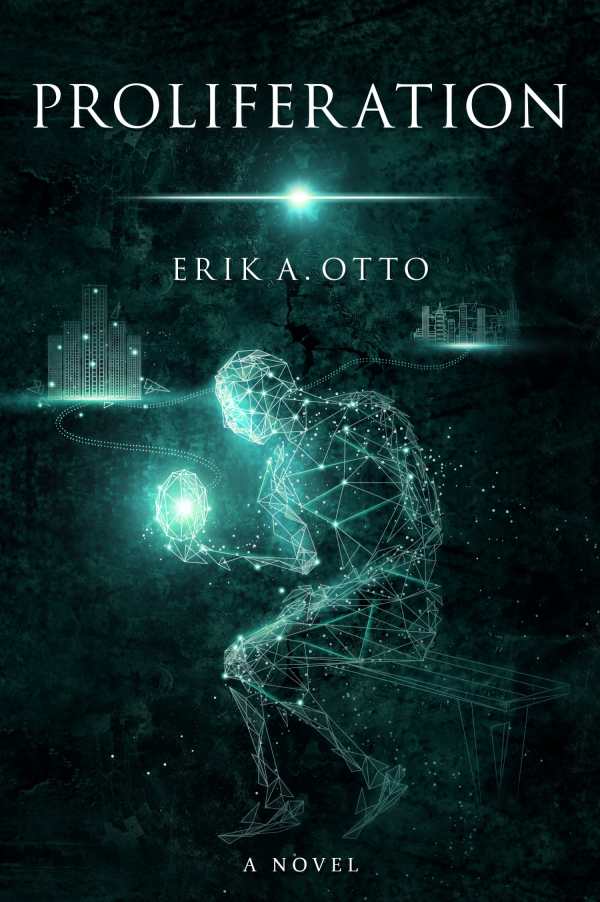Proliferation
Proliferation is a thought-provoking science fiction novel set in the aftermath of a technological apocalypse.
In Erik A. Otto’s intricate science fiction novel Proliferation, humans in splintered factions squabble and AI cities begin to awaken.
One hundred years ago, experimental advanced cities, the ICSMs, were designed as potential utopias, to be governed by artificial intelligence and drones. The idea was to leave human beings free of all strife. But the ICSMs led to war instead, and an apocalyptic event knocked much of the planet back to a preindustrialized state.
Now, people coalesce around three major human factions, all vying for control of the cities that were thought lost after the war. The Essentialists believe that the loss was for the best; they push for life to remain as it is. The Observers are monks who protect and police technology, though they make ironic use of high-tech implants. And the Prefecture crave power and dominion over the ICSMs and human beings. But none of the three factions is in possession of all of the necessary information about the ICSMs.
When one of the ICSM cities awakens, it proves to have the unsettling ability to awaken other cities, too; all were programmed to usher in a society governed by machine intelligence. Caught in the race to control the cities are Dryden, a drunken anthropologist, and Lexie, a wise-cracking pirate; they form an unusual pair as reluctant participants in the conflict. Still, both want to ensure that the right (from their perspectives) people are in command.
Dryden and Lexie’s motivations are individualized: Dryden’s war hero brother-in-law died on his watch, and now he wants a better world for his son, while pragmatic Lexie was abducted by the Observers and forced into her work. Dryden is analytical: he views the ICSMs and the factions vying for their control as participants in a tense strategy game. Lexie, meanwhile, views the events in less colorful terms; she focuses on preventing human corruption. Interesting and dramatic reveals come as Lexie and Dryden interact. The book’s worldbuilding unfurls in a similarly intriguing, slow fashion, as the prose allows tentative peeks into the world at large, in which Lexie also tends to her ailing mother, and Dryden and his ex-wife squabble and care for their precocious son.
The book balances its action scenes with narrative contemplation well. Pulse-pounding sequences find the three factions clashing and the ICSMs activating drones; the story features virtual reality rooms among its other unusual technologies. The ethics of these systems are also considered, as is what responsibility those in power have toward the defenseless populace. That the ICSMs, which were designed as embodiments of ethical governance, failed in the first place is used to question the very viability of such plans. And as the story bounces between Dryden and Lexie’s stories, touching on important developments, the race to control or shut down the AI city states becomes tense.
Proliferation is set in the same universe as Detonation, but it functions well as a standalone novel, with its own cohesive message and complete narrative. The stakes are set when the ICSMs are introduced; by the story’s end, Dryden and Lexie have become more capable and understanding of the technology, as well as having taken control of their private lives.
Proliferation is a thought-provoking science fiction novel in which human beings strive to master an imperfect technology that once caused an apocalypse.
Reviewed by
John M. Murray
Disclosure: This article is not an endorsement, but a review. The publisher of this book provided free copies of the book and paid a small fee to have their book reviewed by a professional reviewer. Foreword Reviews and Clarion Reviews make no guarantee that the publisher will receive a positive review. Foreword Magazine, Inc. is disclosing this in accordance with the Federal Trade Commission’s 16 CFR, Part 255.

